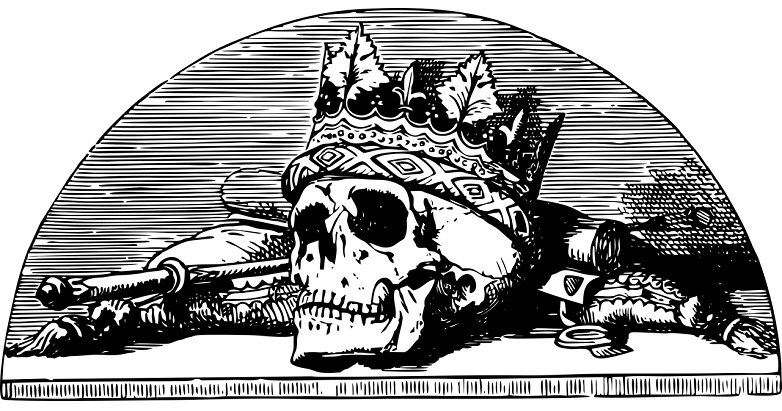Hello, beautiful creatures. Today, I thought it might be nice to talk about hegemony, reconstruction, synthesis, and the influence of political systems on ancient and modern systems of polytheist and magical practice. Are you ready? Let’s do this!
As readers of my previous posts will be aware, I’ve been spending a lot of time lately ruminating on issues of consent within the p-word community, and pondering what a consent-based approach to Pagan, polytheist, and magical practice would look like. These questions are tied up with issues of agency and power, concepts with which the p-word community all too often has an ambivalent relationship. This is especially ironic, given how many people come to these paths seeking empowerment for themselves or for their communities, but far from surprising. People in the Western world have had an ambivalent relationship with both power and agency for… well, as long as there’s been a “Western world.” We crave the freedom and license that power gives us, but we fear the accountability that comes with “doing what thou wilt.” Likewise, we’re more than willing to defend our own agency, but often have trouble with others exercising that same agency in ways we find disagreeable.
One traditional solution to this conundrum has been to regulate access to power by investing it in a privileged group, a ruling class, which doles out power to those it deems worthy… and withholds it from those deemed less worthy. This kind of hierarchical structure, sometimes referred to as “hegemony” (definition here), has several merits, among which are its sheer simplicity. It establishes a clear, simple order of precedence, and dispenses with all the messy complications which arise from more equitable structures.
The trouble is, of course, that hegemony totally sucks unless you’re one of the ruling classes. Very few proponents of hegemony ever think of themselves as being one of the ruled, though. They see themselves, if not as one of the rulers, then at least as one of the middle classes: endowed with enough power to live a comfortable life, but not so much as to have the burden of rulership.
Yes, But What Does Hegemony Have To Do With Paganism?
Those of us participating in the vanguard of the contemporary Pagan, polytheist, and magical renaissance are, in most cases, working with mythologies inherited from our ancestors, reconstructed from the past, or appropriated from the present to form the basis of our cosmological, theological, and magical frameworks. These mythologies derive from cultural contexts which are several hundred years old and, as such, tend to reflect those contexts. They speak the language of their locus, their particular historical time and place, using symbols and concepts which conveyed meaning to the people among whom these myths and symbols arose.
It utterly fails to surprise us, then, that the Norse god Odin is presented to us as a Nordic chieftain presiding over a magical hall populated by fallen warriors. It seems obvious that the Greek god Zeus rules Olympus as king, or that Hades is named as Lord of the Underworld. We don’t blink when we see the epithet “Queen of Heaven” applied to the Egyptian goddess Isis, the Sumerian Inanna, the Greek Hera, even the Christian Mary. In all cases, the language of temporal, secular power—chief, king, lord, queen—is used to convey something about the nature of the power each of these beings holds, both in this world and the next. Similarly, if we consider the world of “high” or “ceremonial” magic, we need look no further than the spirit catalog contained within Lemegeton Clavicula Salomonis (the “Lesser Key of Solomon”) under the title “Of the Arte Goetia” to find “the seventy-two infernal spirits evoked and constrained by King Salomon1,” all addressed with various titles of rulership: king, duke, prince, marquis, even president.
These hegemonic concepts are woven throughout the language we use to talk about our experiences of the numinous, and as a card-carrying feminist leftist trained in a certain amount of critical theory, this gives me some pause. I’m very much in favor of reading texts, grimoiric or mythological, in the light of their original context and locus, but I’m wary of efforts of apply those texts in a modern setting without some serious thought about the implications of their conceptual framework. As an example, most modern Pagans, polytheists, and magical practitioners aren’t practicing in the context of a traditional culture where spirituality is interwoven with the political and social structure of their culture2. Most of us live under some form of representative government, and even those modern nation-states which are ostensibly monarchic in nature (such as the United Kingdom) bear little resemblance to the cultures of antiquity, when the myths, cosmologies, and symbolic languages which inform the modern p-word movement first came into being.
Attempting to apply the cultural language of another locus to our own can create a kind of psychospiritual disconnect, in that we’re using words and symbols which originally had meanings and context not necessarily available to us moderns, and have meanings in the present which would have been alien, even antithetical, to the people who originated them. We tend to read the mythic language of our forebears through modern eyes, because we cannot do otherwise. As a tongue-in-cheek example, I’m sure Her Majesty Elizabeth II is a lovely lady, but the title of “queen” used to describe her in 2017 CE has rather different connotations from the same word being used to describe Inanna in 4000 BCE.
An unavoidable consequence of this disconnect is we are often forced to make a choice, either to adapt the myths and symbols the past to meet our present needs, or to mold our present attitudes and practices into a shape we believe the past might’ve recognized. Either route has its dangers: in the first, our desire to synthesize something new can lead to doing violence to the history and disrespect to the gods we claim as inspiration3, while in the second, our desire to recreate the past can come perilously close to performance, spirituality as cosplay. Either way, we risk failing to honor and reconnect not only with the riches contained with our own history, but with the gnosis at the heart of our mythologies.
The answer may lie in finding a third way, something between strict, formalist recreation and casual, ahistorical synthesis. It may require something genuinely unsettling, even fearful: openness and vulnerability to the gods, spirits, and traditions we seek to bring into our lives, on their own terms.
More on this anon, as always. Until then, dear ones, stay safe. ♥

- Yes, it’s actually spelled this way in the text I’m citing. Yes, I know it’s normally spelled “Solomon” in English. I mean, if we’re getting technical, they’re all wrong, because they’re all transliterations of the Hebrew, which is spelled שְׁלֹמֹה, but hey, who’s counting?
- There are a very few exceptions, depending on how one chooses to define “Pagan,” “polytheist,” or “traditional culture,” but those are beyond the scope of this analysis. My areas of focus are Western and Middle-Eastern esoteric spirituality, and I’m not qualified in any way to discuss African traditional religion or Afro-Diasporic religion, for instance, for the folk religions of Central and South America, except insofar as they cross paths with areas where I do know something. Even then, I’m deeply cautious about speaking beyond my expertise, and much prefer to say nothing at all, other than to admit my profound ignorance.
- This phenomenon is aptly described in Jason Davies’ review of Jacob Rabinowitz’s The Rotting Goddess, a curious paean to the Greek goddess Hekate which attempts to straddle the line between scholarly aspiration and neo-Pagan reconstruction.












